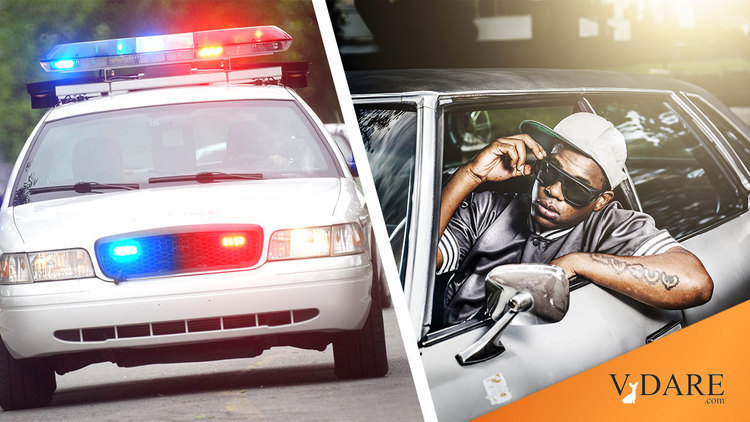


03/12/2003
The Washington Times had an article yesterday ["Resetting the profile odometer," March 12, 2003, by Linda Seebach] detailing the refutation by the Manhattan Institute’s Heather Macdonald of allegations of "profiling" by New Jersey State police.
Cowardly Republican Governor Christie Todd Whitman (now a Bush Administration Cabinetperson) issued a mea culpa and fired Col. Carl Williams only hours after he pointed out the ethnic composition of drug couriers. ["Two weeks ago, the president of the United States went to Mexico to talk to the president of Mexico about drugs,'' said Williams. "He didn’t go to Ireland. He didn’t go to England.'']
Racial profiling, however, isn’t necessarily the explanation for the "disparate impact" of traffic stops on black motorists.
The theory behind the "profiling" myth is that innocent black motorists are being stopped simply because they're black. That makes it a violation of their civil rights.
Even if they're found to have evidence of a crime on their person, or in their car, this evidence can be suppressed, based on the Fourth Amendment’s "right of the people to be secure in their persons, houses, papers, and effects, against unreasonable searches and seizures" and the "Exclusionary rule" which translates the "right of people to be secure in their persons" into "The right of the guilty to be found not guilty."(My own formulation.)
This exclusionary rule, by the way, does nothing to protect innocent people who are searched illegally, and then let go. By definition, you can only exclude evidence in cases where the police have found, you know, something. But that’s why the criminal defense bar is so insistent on claiming that their clients are victims of profiling.

However, a survey by the State of New Jersey on the relationship between race and speeding produced a very interesting statistic: black drivers speed twice as much as white drivers! According to the Washington Times
"The New Jersey attorney general commissioned a research study designed and carried out by the Public Service Research Institute in Maryland. The researchers took photos of nearly 40,000 cars whose speed was simultaneously measured with a radar gun. A team of three evaluators looked at the photographs and identified the race of the driver. (Evaluators had no information about the speed of the car).
"When researchers combined driver identifications with the speeding information, Ms. Mac Donald says, they found 'black drivers speed twice as much as white drivers, and speed at reckless levels even more.'"
Heather Macdonald has now written a book about the whole issue, called Are Cops Racist? How the War Against the Police Harms Black Americans.
The point made in the subtitle, that innocent black people are most likely to be the victims of black criminals because they live near them, or with them, and because have personal and business relationships with them, is a valid one.
I just wish it weren’t the only way the argument about the demographics of crime could be advanced.
After all, a good many victims of crime committed by blacks are. in fact, white.
This is the main problem that has made race relations so difficult over the past thirty years. For example, "white flight" was not caused by racial snobbishness, but by a perfectly legitimate fear of death.
Years ago, when Evelyn Waugh wanted his church to retain the Latin Mass, he was told that Latin was the preserve of the "educated few." He asked if the church couldn’t find a little charity in its heart "even for the educated few?"
Perhaps criminologists will someday be able to find charity in their hearts even for the white victims of crime.
Web guru note: Heather Macdonald’s book is a collection of her City Journal pieces. Thrifty people who don’t mind reading books on computer will find all of City Journal available online. Here’s a selection: